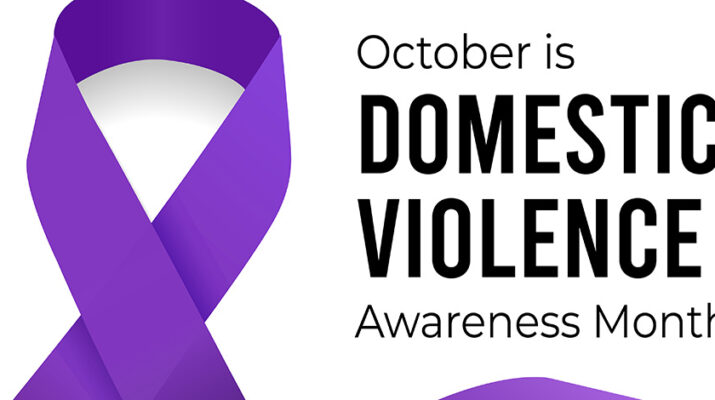Experts say when immediate needs of housing and financial resources are met, it’s important for victims to seek emotional support through counseling and group support
By Deborah Jeanne Sergeant
Surviving domestic abuse requires not only escaping the reach of the perpetrator to achieve physical safety, but also recovering emotionally and mentally.
Marcy Abramsky, licensed clinical social worker and owner of InspireAmind in Williamsville, said that survivors of domestic violence often feel an anxious adrenaline surge immediately after leaving.
“It’s like you’ve just robbed a bank and whatever just happened will catch up with you,” she said. “This mixed feeling of fear and yet the rush of what you think you want. You feel totally confused about what happiness is to you.”
Once the basic, immediate needs of housing and financial resources are met, it’s important to seek emotional support through counseling and group support. At that point, “you can begin to really consider the fact that you are now safe,” Abramsky said. “This support also helps you to accept the reality of what you lived through versus your new safety. As part of the healing process, you should look at your resources, self-awareness and transformation of your perspective. Find resources within your family, friends or new peer group for support. Connect to people start to be authentic and share your true experiences without fear of judgment.”
For a long time, the survivors have been forced to deny their own thoughts, wishes, and needs to fulfill the perpetrator. Some survivors were dominated by an abuser so long that they no longer know how to make decisions or even what they want anymore, from choices as trivial as what to eat for dinner to choices as important as who to date. This can place them in danger of becoming trapped in another abusive relationship again.
Perpetrators purposefully craft their version of reality around the survivor by cutting them off socially, denying them their victims their rights and individuality and enforcing—with consequences—the abuser’s point of view.
“Gain awareness and perspectives–sexually, intellectually, emotionally and financially–and take in the new information about who you really are,” Abramsky said. “Update and reprogram yourself by working to evaluate that who you are isn’t what your abuser made you think. It is your new perspective and awareness of your strengths, value and happiness.”
Perpetrators do more than hit. Abuse can also include intentional and persistent mental, emotional, spiritual and sexual abuse. Mental abuse includes intimidation, mind games, gaslighting and manipulation. Emotional abuse can take the form of “love bombing” followed by withdrawal, threats, cruelty and completely withholding love and affection. Spiritual abusers may restrict or force participation in particular worship and spiritual expression and use ever-shifting “rules” about spiritual practice to control the victim. Sexual abuse involves using sexual practice for manipulating the victim, such as forcing or withholding intimacy or demanding unwanted types of sexual activity. The foundation of all abuse is consistently using means to control and dominate the other person.
In addition to the brainwashing aspects of abuse, survivors suffer the loss of their relationship (difficult though it was) and often their home, pets, work, friends and possessions. Numerous areas of their lives change in a flash when they leave.
Jill Woodruff, board-certified art therapist and licensed mental health counselor in private practice in Dansville, likens it to the processing required for grief and loss. The stages are not necessarily linear, and it takes time to work through it, as victims have been conditioned to live under the perpetrator’s control over every area of their lives for months and typically years. Before diving into another romantic relationship, it’s vital to recover first.
“Always with mental health, there’s no right answer as to how anyone is supposed to feel,” Woodruff said. “Give people time and space to feel. Hold a space for them and give them time.”
Woodruff advises survivors to stay in one-on-one therapy as long as possible.
“That gives you someone outside your own head giving you input,” she said. “Find a group to participate in to feel validated.”
Caring friends can also help provide support in rebuilding a sense of self-worth and confidence. Oftentimes, survivors are more gracious to others than themselves.
“Ask yourself, ‘What would a healthy relationship look like if I saw it for someone else?’” Woodruff posed. “Your own lens is skewed by abuse. Providing reflective distance for ourselves can help us see what’s healthy for someone else is also healthy for ourselves.”
This strategy can help build better skills for navigating relationships, whether friendships or romantic relationships. Survivors need to learn how to set personal boundaries that are neither too permissive nor too restrictive.
Most abusers damage the survivor’s relationships with others as isolating the victim helps keep the abuse secret and prevent supportive friends and loved ones from helping. Becoming involved in group settings with a hobby or other activity can help rebuild friendships and build new friendships.
“Get involved in a supportive community setting with a hobby or something that feels good and is unconditional and supportive,” Woodruff said.
This can be a good time to pick up a beloved hobby that was dropped or to try something completely new. Some people find that practicing martial arts provides a supportive community of new friends, a physical activity that is both mentally and physically engaging, and practical skills that can boost their confidence.

